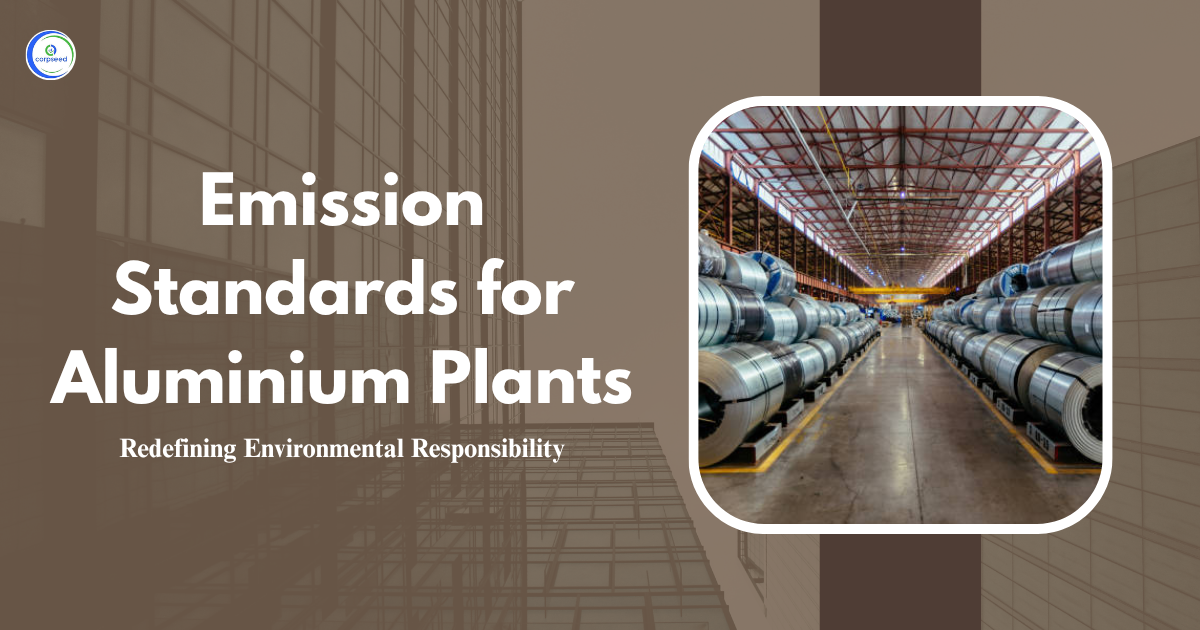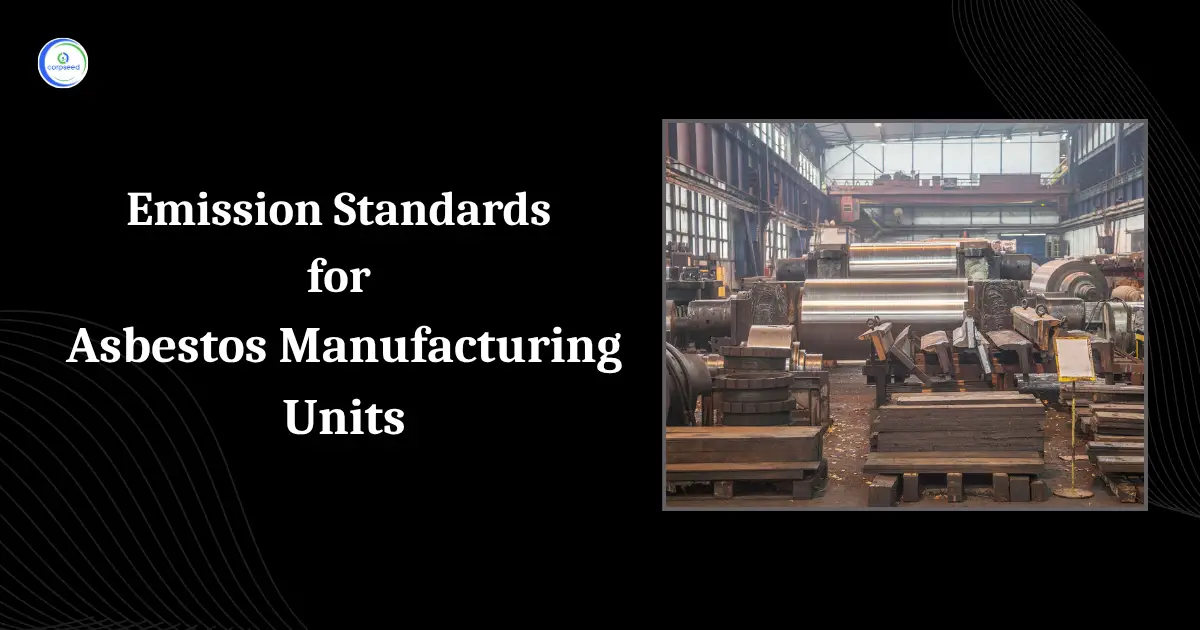To start a business in India, it’s obligatory for businesses to get environmental authorization. MOEF compliance in India is more than just a legal obligation, it is required for manufacturing, construction, and mining and energy projects. Adhering to MOEF regulations, industries can save time, gain faster approvals, reduce penalties and build brand credibility in the market.
Table of Contents
- What is MOEF Compliance in India?
- Why MOEF Compliance Matters for Businesses
- MOEF Compliance Process in India
- Key MOEF Compliance Regulations in India
- MOEF Compliance Requirements for Construction Projects
- MOEF Compliance Checklist for Industries
- Penalties for Non-Compliance with MOEF Rules
- MOEF Compliance and Sustainable Growth
- Conclusion
What is MOEF Compliance in India?
MOEF Compliance in India means complying with the rules and approvals imposed by the Ministry of Environment, Forest and Climate Change (MOEFCC). Companies that plan to start their activity must obtain the approvals from the Ministry of Environment, Forest and Climate Change. This ensures businesses must comply with environmental standards before commencing any project.
Every project, whether its construction, mining, or manufacturing has some influence on the nature. To keep such impacts in control, MOEF has issued MOEF guidelines and approvals, which is mandatory for businesses to obtain before establishing their company or industry. Without a valid MOEF compliance in India, projects which might affect the nature cannot operate legally.
Why MOEF Compliance Matters for Businesses
MOEF compliance is the foremost step towards starting a business in India. It protects the exploitation of environment and also helps businesses avoid penalties or permanent closures.
Businesses that plan to set up in India fulfilling MOEF regulations is crucial. It not only safeguards the natural resources but also helps business build their brand image in international marketplaces. Nowadays, most of the people across the world prefer working with companies that have appropriate environmental clearance. Therefore, compliance is vital, it makes the approval process smooth, reduces the risks and builds strong reputation.
MOEF Compliance Process in India
The MOEF compliance process make sure theta businesses fulfill MOEF compliance rules. Following are the step-by-step process:
- Application for Environmental Clearance: Start with submitting your project details, consisting resources used and its possible impact on the environment.
- Screening of Project: After that authorities will check whether projects requires a detailed Environmental Impact Assessment (EIA) or not.
- Environmental Impact Assessment (EIA): Environmental Impact Assessment is done by performing comprehensive study to measure its impact on air, water, land, forests, and communities.
- Public Consultation: Local people may be asked for their opinions, especially in projects that impact large regions.
- Review and Approval: The MOEF approval process consist of checking all reports. If the project meets the rules, clearance is issued.
- Compliance Monitoring: Even after MOEF clearance, companies are required to regularly show proof that they are following the conditions laid down.
--------------Blog Contact Form-------------
Key MOEF Compliance Regulations in India
These are several MOEF compliance regulations in India, some of the important regulations apply to projects and industries. The key regulations include:
- Environmental Protection Act, 1986: Framework law to protect the environment.
- EIA Notification, 2006: Makes Environmental Impact Assessment necessary for certain projects.
- Forest Conservation Act, 1980: Controls use of forest land for non-forest activities.
- Air (Prevention and Control of Pollution) Act, 1981: Regulates industrial air pollution.
- Water (Prevention and Control of Pollution) Act, 1974: Deals with wastewater discharge and water protection.
- Hazardous Waste Management Rules: Ensures safe handling and disposal of harmful waste.
MOEF Compliance Requirements for Construction Projects
The construction sector is one of the major applicants for MOEF environmental clearance for projects. Large housing projects, commercial complexes, roads, and highways all require clearance before commencing operations. Following are some common MOEF compliance requirements for construction include:
- Efficient use of land and water.
- Proper disposal of construction and demolition waste.
- Measures to cut down dust and noise pollution.
- Creating green belts or landscaping to reduce damage.
- Setting up rainwater harvesting and energy-efficient systems.
MOEF Compliance Checklist for Industries
Each sector has its own need, but MOEF compliance’s general checklist for industries make sure businesses fulfill the given environmental compliance in India to avoid hefty fine.
- Obtain MOEF clearance before beginning new projects.
- Keep detailed records of waste treatment and disposal.
- Use emission-control technologies.
- Submit compliance reports to MOEF on time.
- Train employees on environmental safety.
- Carry out periodic internal audits.
Penalties for Non-Compliance with MOEF Rules
Adherence to MOEF rules and regulations is necessary, non-compliance may result in heft fines or permanent closure of business. The penalties for MOEF non-compliance in India include:
- Heavy fines, often higher for repeated breaches.
- Suspension or withdrawal of project approvals.
- Court action against company officials.
- Blacklisting, which blocks future approvals.
Also Read: MOEF Guidelines for Construction Projects
MOEF Compliance and Sustainable Growth
In recent times, consumers and business partners look for companies that fulfills the environmental compliance. By complying with MOEF rules industries become accountable for their environmental impact. By this industries not only fulfill the legal obligations but also adds to the nation’s climate goals.
Conclusion
In conclusion. MOEF compliance in India, is not just about obtaining approvals, it ensures industries or businesses operating in the country must grow without harming the environment. By fulfilling MOEF regulations, industries can dodge penalties, avoid business closures, gain approvals, build trust among consumers, and boosting brand image in the market. A valid environmental clearances also helps business in achieving long-term growth and sustainability.
This portion of the site is for informational purposes only. The content is not legal advice. The statements and opinions are the expression of author, not corpseed, and have not been evaluated by corpseed for accuracy, completeness, or changes in the law.
BOOK A FREE CONSULTATION
Get help from an experienced legal adviser. Schedule your consultation at a time that works for you and it's absolutely FREE.
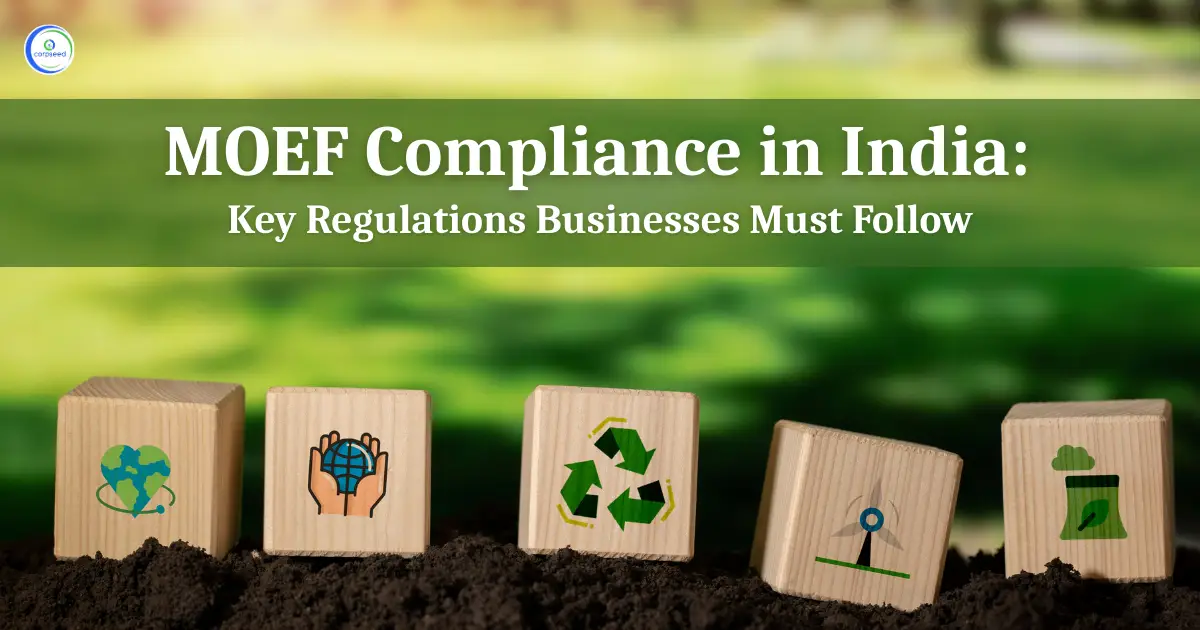


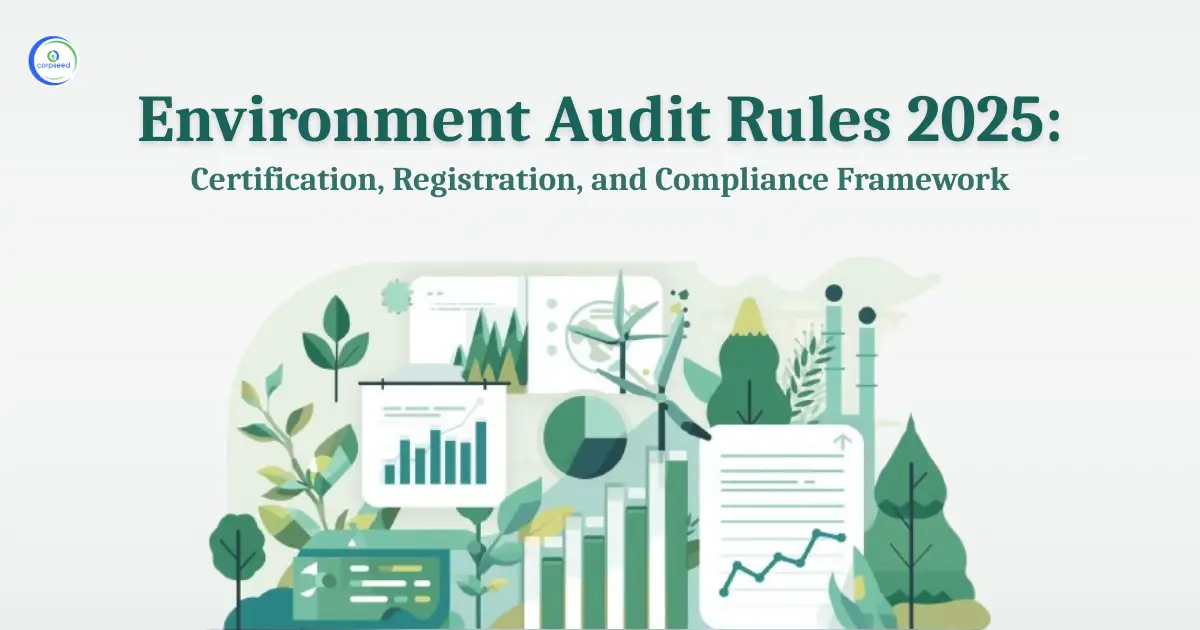

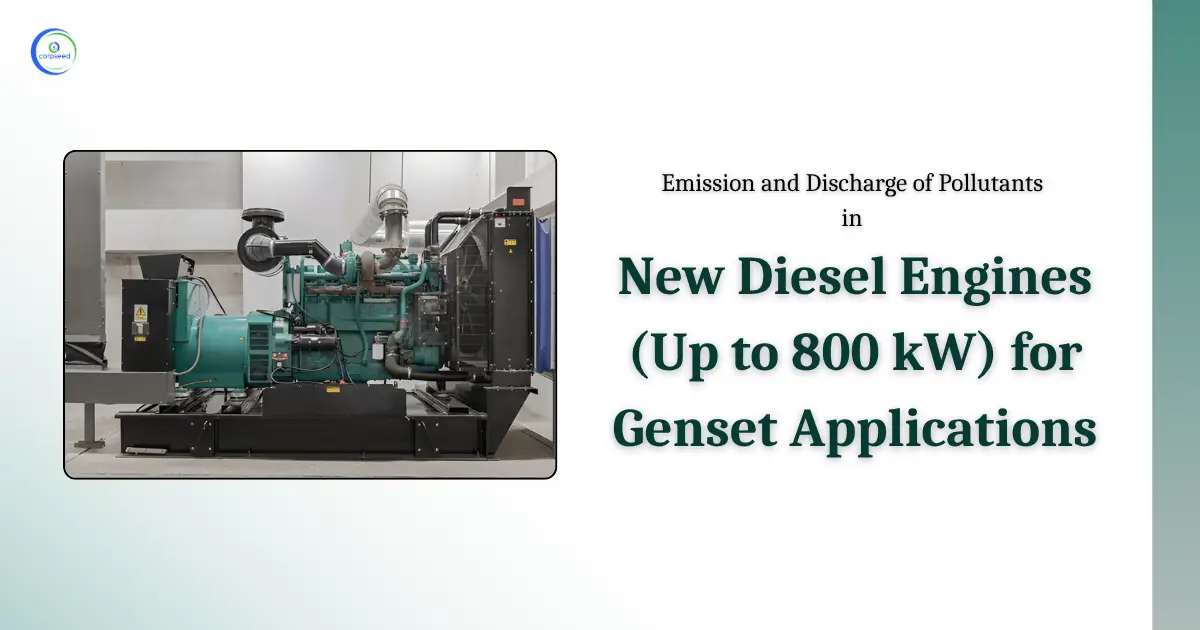
_Corpseed.webp)
.webp)
